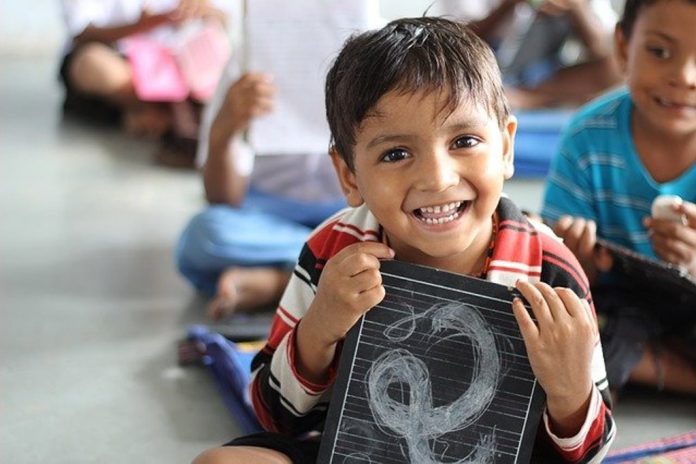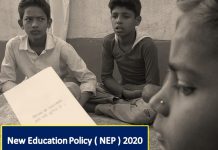
It is true that foundational literacy and numeracy are important aspects of the teaching-learning process and cannot be ignored. The policy paints a grave picture when it states that ‘a large proportion of students currently in elementary school – estimated to be over 5 crore in number – have not attained foundational literacy and numeracy, i.e., the ability to read and comprehend basic text and ability to carry out basic addition and subtraction…’
The policy declares the attainment of foundational literacy and numeracy as an ‘urgent National Mission’ and aims at achieving universal foundational literacy by 2025. Various measures have been listed in the Policy that are proposed to be undertaken to achieve this target. These include, establishment of a ‘National Mission on Foundational Literacy and Numeracy’ under Ministry of Human Resource and Development’ (MHRD), under which state-wise plans shall be formulated and implemented. It is proposed to fill teacher vacancies at the earliest to establish a desirable pupil-teacher ratio. Curricular changes are suggested to focus more on foundational literacy and numeracy. It has also been proposed to develop a 3-month play based ‘school preparation module’ for Grade I students, to act as a bridge between ECCE and Grade I. It has been suggested that technology and online learning resources will be leveraged, through DIKSHA (Digital Infrastructure for Knowledge Sharing). Emphasis has been laid on peer-tutoring and there is a proposal to frame a ‘National Book Promotion Policy’. Lastly, linkage has been established between learning levels of children and their mental and physical well-being and nutritional requirements.
The above-mentioned goal and the various ways proposed to achieve the goal – all appear to be desirable and necessary. However, there are a few important observations which need to be made and should be kept in mind while discussing these policy measures and their impact.
Key Issues that are Central to the Question of Literacy and Numeracy
First and foremost, it is true that we are lagging much behind in areas of foundational literacy and numeracy. There are multifarious reasons for the same. These include a high dropout rate, lack of family support, low motivational levels among children, household responsibilities from an early age, low motivational levels and inadequate training of teachers, inadequate ECCE support and inadequate nutritional support, which impacts the physical and mental health of children.
Many of these reasons are identified in the policy and are proposed to be addressed in different ways. However, in doing so, it is essential to remember that these are not isolated reasons to be addressed in a piecemeal manner but will need to be seen and analysed in a holistic manner. Only after such a holistic analysis, can solutions be devised which will be able to address the problems.
For instance, in order to improve the learning levels of students it is essential that students come to schools in the first place, that they do-not drop out once they enrol and that they enjoy the teaching-learning process that goes on in the school.
In order that these goals are achieved, the overall State spending on education will have to be dramatically increased so that the State can ensure that each and every child is guaranteed free and compulsory education at least to a certain minimum level. Secondly, the overall socio-economic condition of the society will have to be improved. Thirdly, each and every child will have to be guaranteed access to quality education, without any discrepancy between any two children based on any factor that depends on the accident of their birth. This can be done only if the State takes responsibility for the education and learning of all its population without any discrimination on any basis whatsoever. In other words, this can be achieved only through the establishment of a common schooling system. Nothing short of it can help achieve this goal.
The measures that have been suggested in the policy are not anything new. These have been suggested before in various policy documents but the implementation has always been wanting. Further, these solutions have not helped address the issues due to their piecemeal approach. There is nothing in the policy to suggest that things will be any different this time around.
Before I conclude, I want to talk a bit about the ‘National Book Promotion Policy’ that has been mentioned in the Policy. Again, there can be no doubt that this is a laudable aim, but a note of caution needs to be sounded here as well.
There is definitely a dire need of promotion of a culture of ‘reading’ in our society. ‘Reading’ needs to be shifted from the category of a ‘hobby’ which one does by choice to an ‘essential activity’ which is necessary for the survival of human beings. Reading is to the mind as food and nourishment is to the body. The ability to distinguish between right and wrong and to realize one’s full potential as a human being can only be achieved through reading.
Books are indeed the best of friends that one can have. However, the promotion of the culture of reading can only be meaningful if it is accompanied with the assurance that the freedom to read a book of one’s choice shall be protected for every individual. The promotion of the culture of reading should not be turned into the promotion of culture of reading of only certain kind of material which is thought fit by some authority somewhere for consumption.
We have often seen that people are labelled and even criminalized based on their reading choices and the collection of books that they possess. These kinds of tendencies and hidden motives need to be guarded against. Further, the establishment of public/school/institutional libraries are all very welcome, given that sufficient funds are allotted for this task and that maintenance of these places is given as much importance as their establishment.
Nivedita Dwivedi is an Independent Writer. She is working in the field of education and—based in Mumbai.












